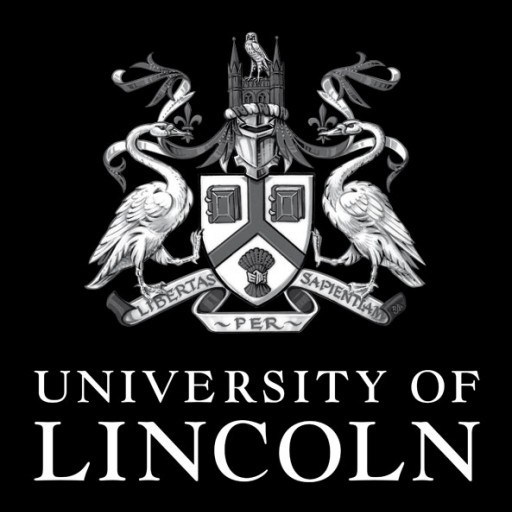The Bachelor of Pharmacy at the University of Lincoln offers students a comprehensive education in pharmaceutical sciences, preparing them for a rewarding career in healthcare and community pharmacy. This program is designed to equip students with the essential knowledge and practical skills required to become competent and confident pharmacists. Throughout the course, students will explore a wide range of topics, including pharmacology, medicinal chemistry, pharmaceutical technology, and clinical pharmacy practice. The curriculum combines theoretical learning with practical placements, enabling students to gain real-world experience in pharmacy settings. Emphasis is placed on patient-centered care, ethical practice, and professional development, ensuring graduates are prepared to meet the evolving needs of healthcare systems. The program also highlights the importance of research and innovation in pharmacy, encouraging students to engage in projects that contribute to advancing pharmaceutical sciences. Students have access to state-of-the-art laboratories and learning resources, fostering a stimulating environment for scientific exploration. The University of Lincoln's strong links with industry partners and healthcare providers facilitate excellent placement opportunities, supporting students' career aspirations upon graduation. Upon successful completion of the program, graduates are eligible for registration as pharmacists and can pursue diverse career paths within community pharmacies, hospitals, pharmaceutical companies, and research organizations. The program is accredited by relevant professional bodies, ensuring that students meet the standards required for professional practice. Dedicated academic staff with extensive industry experience deliver engaging lectures, tutorials, and practical sessions, guiding students throughout their academic journey. The Bachelor of Pharmacy at Lincoln is committed to providing a supportive learning environment that fosters innovation, teamwork, and leadership, preparing students not only to excel as pharmacists but also to contribute positively to society and healthcare advancement worldwide.
Detailed Course Facts
Application deadline International students -30 June Tuition fee- EUR 10700 Year (EEA)
- EUR 16230 Year (Non-EEA)
- £9,000 Per level (Full and part-time);
- £13,648 Per level
- English
Course Content
Placements
M.Pharm students will have the opportunity to undertake placements within hospital, community, primary care and industrial pharmacy; these will be integrated to support the students learning and development. As part of the placement program, students will have their own practicing pharmacist mentor for the duration of their studies.
Student as Producer
Student as Producer is a development of the University of Lincoln's policy of research-informed teaching to research-engaged teaching. Research-engaged teaching involves more research and research-like activities at the core of the undergraduate curriculum. A significant amount of teaching at the University of Lincoln is already research-engaged.
Student as Producer will make research-engaged teaching an institutional priority, across all colleges and subject areas. In this way students become part of the academic project of the University and collaborators with academics in the production of knowledge and meaning. Research-engaged teaching is grounded in the intellectual history and tradition of the modern university.
Facilities
The University of Lincoln is developing a £14m world-class science and innovation park in association with the Lincolnshire Co-operative. The School will be housed in a landmark 1930s art deco styled building, displaying features typical of that period, which will be refurbished to a high standard to create state-of-the-art laboratories and clinical teaching spaces, together with the existing £5.5m Science Centre.
Requirements
320 Points from a minimum of 3 A levels, to include 80 points from A level Chemistry or Biology plus 80 points from another A level science
Work Experience
No work experience is required.
Related Scholarships*
- Academic Excellence Scholarship
"The Academic Excellence Scholarship can provide up to a 50 % reduction in tuition per semester. These scholarships will be renewed if the student maintains superior academic performance during each semester of their 3-year Bachelor programme. The scholarship will be directly applied to the student’s tuition fees."
- Access Bursary
Bursary for UK students all subjects where the variable tuition fee rate is payable.
- Alumni Bursary
Alumni Bursary for UK Undergraduate students
* The scholarships shown on this page are suggestions first and foremost. They could be offered by other organisations than University of Lincoln.
Accreditation
All Schools of Pharmacy in Great Britain are accredited by the General Pharmaceutical Council (GPhC), http://www.pharmacyregulation.org/ which is the regulator for pharmacy in Great Britain. Recently (May 2011) the GPhC has introduced new standards for the initial education and training of pharmacists called Future Pharmacists.
The MPharm course at Lincoln is being specifically designed to meet these new standards and to produce the next generation of Future Pharmacists. All new Pharmacy Schools such as Lincoln are subject to seven, stepwise annual inspections as the course is being designed and taught, receiving full accreditation for the next 6 years as the first students graduate.
Because of this rigorous process you can be confident that the School will meet the standards throughout its development. Further information can be found on the GPhC website together with accreditation reports from all the current schools.







